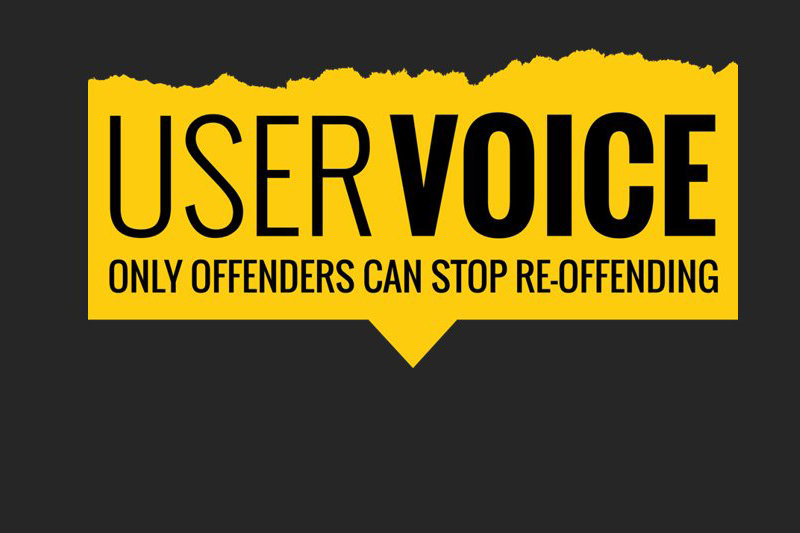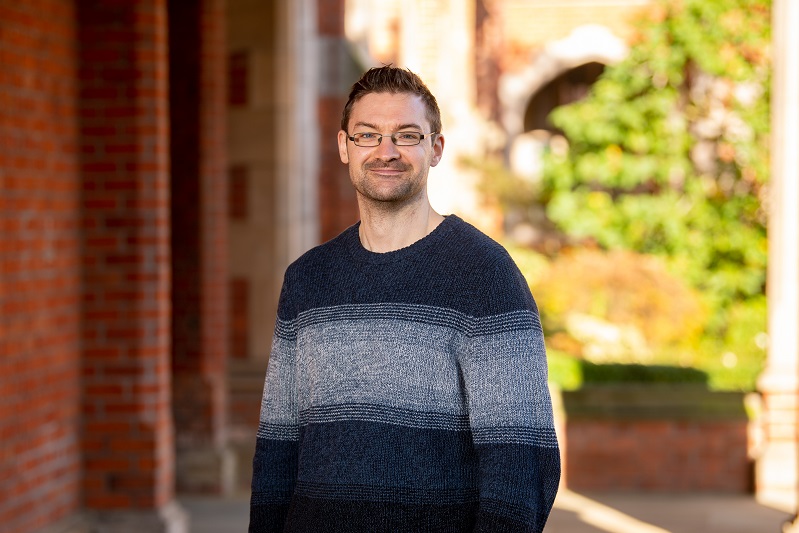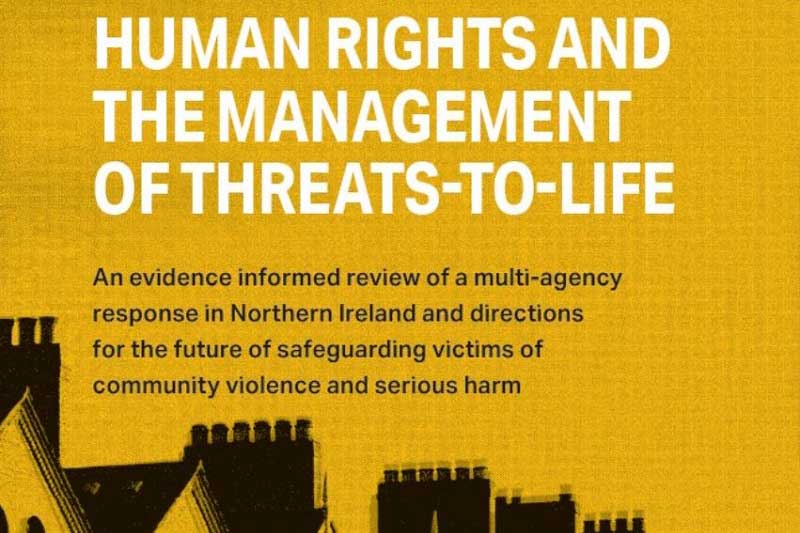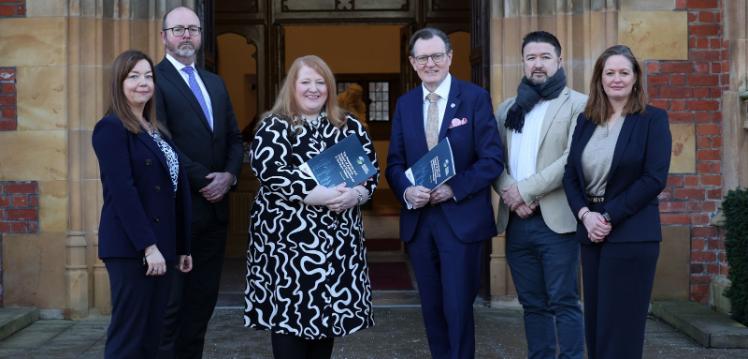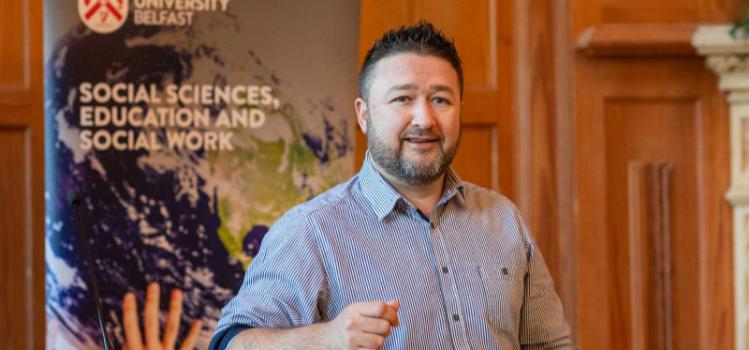Criminology
Criminology at Queen’s is internationally recognised for its research contributions and teaching excellence.
Criminology asks difficult questions about criminal law, its enforcement and harmful behaviours. For instance, what is crime? Who is a criminal? Are all harmful behaviours illegal? What are the consequences of offending? Does punishment deter crime or create more harm? Queen’s University Belfast provides an exciting place to study these questions, as the history of conflict in Northern Ireland provides unique insights into how offending and the criminal justice system can be shaped by wider sociological and political issues. Students in the School are educated in a dynamic, supportive environment by award-winning teaching staff, who are committed to helping students achieve their potential.
Moreover, Queen’s University Belfast has a long history of undertaking outstanding research and teaching in criminology, with particular expertise in the areas of youth justice, policing, victimology, international criminology justice, conflict, alcohol and drug use, trauma, and imprisonment. In all our work, we seek to better understand the causes of crime, societal responses to crime and the consequences of crime, drawing on psychological and sociological perspectives. Special attention is also paid to questioning whether existing methods used to respond to crime are effective in combatting crime or may exacerbate offending.
Additionally, staff are engaged in world-leading and internationally excellent research. Over 88% of research submitted by colleagues from Criminology, Social Policy, Sociology and Social Work to the Social Policy and Social Work Unit of Assessment (UoA) in an independent government review of research was judged to be world-leading or internationally excellent. This demonstrates the quality of our research and its impacts in areas, such as the penal system, mental health, and trauma. This research has been ranked 12th in the UK (Times Higher Education Social Work and Social Policy UoA table) and is undertaken in partnership with the criminal justice, health and social care sectors.
IN THE UK
IN THE UK
Student Experience:
What is Criminology?
Listen to a brief explanation of what Criminology is about, from three students studying at Queen's University Belfast.
What is Criminology?
Dr John Topping, Queen's University Belfast, asks the question 'What is Criminology?'
Student Experience:
BA (Hons) Criminology
Want to know about Criminology at Queen's? Darryl explains why he considers it 'a fantastic course'.
Student Experience:
BA (Hons) Criminology and Sociology
Listen to what Dana, a third year student, has to say about the course and the student experience, such as what it was like moving from the Philippines to Belfast, and her recommendations for new criminology students.
Student Experience: Studying Criminology at Queen’s University Belfast
Listen to what Annalisa, a third year student, talk about what drew her to the course, what sets it apart from other courses in the UK, and how it has prepared her for a career she never considered.
Criminology Career Paths
Interested in a career in Criminology?
Carmel Colton from the Careers Service at Queen's University has some advice on potential career paths for those studying for a degree in Criminology.
Thinking As A Criminologist
Hear Dr John Topping discuss the types of questions that students studying criminology ask and how they begin to think about the world around them. The skills they gain are also highlighted.
Let's Get Topical
Listen to Professor Michelle Butler discuss the complex relationship between the amount of people in prison and crimes rates, as well as more effectively strategies to reduce crime and protect the public.
Let's Get Topical
Dr Kevin Hearty, Criminology Senior Lecturer, discusses how the "Ideal Victim' is a term coined by Nils Christie to represent an unrealistic but widely held view of victimhood in society which can often be misleading and based on false assumptions.
Student Experience:
PhD Criminology
Hear what Kelly Razey has to say about her journey into third year of a Ph.D in criminology as she talks about what got her interested in Criminology, the topic she's researching, the challenges she's faced and what advice she has for future Ph.D. students.
Criminology Career Paths
Criminology graduates can work in the traditional criminal justice agencies, such as the police, crime prevention and early intervention programmes, as well as the prison service. However, criminology graduates can also work in a range of other occupations, including the media, civil service, research, teaching, business, voluntary and community organisations, as well as private industry. Additionally, criminology graduates often work in victim support organisations, with vulnerable at risk groups and in other social care agencies. Typical career destinations of graduates include:
- Victim Support Worker
- Crime Analyst
- Working with people in conflict with the law (e.g. offender management, rehabilitation, etc.)
- Researcher
- Civil Servant (e.g. Police Officer, Prison Officer, etc.)
- Policy Analyst (e.g. working to shape criminal justice policy and practice)
- Charity Worker (e.g. working with the families of victims and/or offenders)
- Youth and Community Worker.
Visit Employability and Our Graduates for more information.
Study
Key Themes
|
|
|
Academic Staff
| Name | Area of Expertise | Telephone | |
|---|---|---|---|
| Dr Allely Albert | Restorative Justice; Post-Conflict Peacebuilding; Informal Policing; Prisoner Re-entry; Human Rights | a.albert@qub.ac.uk | +44 (0)28 9097 1858 |
| Professor Michelle Butler | Prisons; Psychology of Crime; Penal Reform | michelle.butler@qub.ac.uk | +44 (0)28 9097 3956 |
| Dr Mary-Louise Corr | Young People in Conflict with the Law; Youth Justice; Domestic Violence; Homelessness; Marginalised youth; Biographical Research. | m.corr@qub.ac.uk | +44 (0)28 9097 5370 |
| Criminology of War; Policing/Military Continuum; Social Control | t.degenhardt@qub.ac.uk | +44 (0)28 9097 1244 | |
| Dr Kevin Hearty | Transitional Justice; Victimology; Political Violence; Critical Criminology; Human Rights; Policing. | k.hearty@qub.ac.uk | +44 (0)28 9097 1176 |
| Dr Siobhan McAlister | Young People in Conflict with the Law; Youth Marginalisation; Sensitive Research; Children’s Rights. | s.mcalister@qub.ac.uk | +44 (0)28 9097 5918 |
| Professor Andrew Percy | Quantitative Criminology; Adolescent Development; Longitudinal Research; and Alcohol and Drug Use. | a.percy@qub.ac.uk | +44 (0)28 9097 5261 |
| Police Practice; Police Reform; Security Governance and Stop/Search. | j.topping@qub.ac.uk | +44 (0)28 9097 3630 | |
| Dr Julia Viebach |
International Criminal Justice, Transitional Justice, Genocide and Crimes Against Humanity, Mass Graves, Human Rights Documentation, Rwanda, South Africa, Southern Epistemologies, African Studies |
j.viebach@qub.ac.uk | |
| Dr Colm Walsh |
Youth violence; psychological trauma; masculinity; evidence based practice; service design and evaluation. |
colm.walsh@qub.ac.uk | +44 (0)28 9097 3174 |
Research Staff |
|||
| Brenda Brady | Arts-based interventions in the area of adult mental health, stigma and help-seeking behaviour. | brenda.brady@qub.ac.uk | |
| Dr Judith Fullerton | Transgenerational Trauma in Post-Conflict Societies; Cultural Trauma Transmission in Social Groups; Transitional Justice and Peacebuilding. | j.fullerton@qub.ac.uk | |
| Dr Montserrat Fargas | m.fargas@qub.ac.uk | ||
| Dr Cecilia Gialdini |
Linguistic justice and minority rights - traditional minorities and indigenous people, and new minorities such as migrants and refugees. |
cecilia.gialdini@qub.ac.uk | |
| Dr Antoinette Keaney-Bell |
Geoforensics; Geographical Information Science (GIS); Geostatistics; Quantitative data; Geosciences; Spatial and Temporal Data; Historical Geography; Compositional data analysis; Interdisciplinary collaboration; Environmental analysis. |
a.keaney@qub.ac.uk | |
| Alan McKinstry |
|
a.g.mckinstry@qub.ac.uk | |
| Dr Amanda Morse |
Violence, suicide, and substance use prevention, particularly among young men. |
a.morse@qub.ac.uk |
Key Research Projects
Engagement
Criminology articles from our current Newsletter




